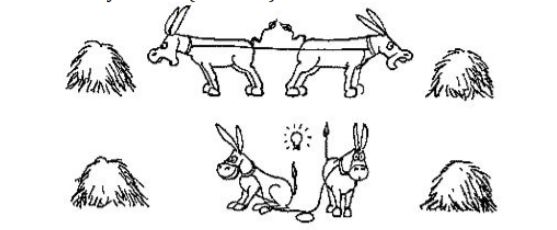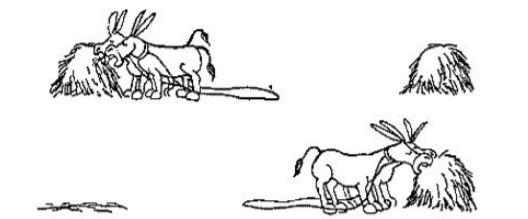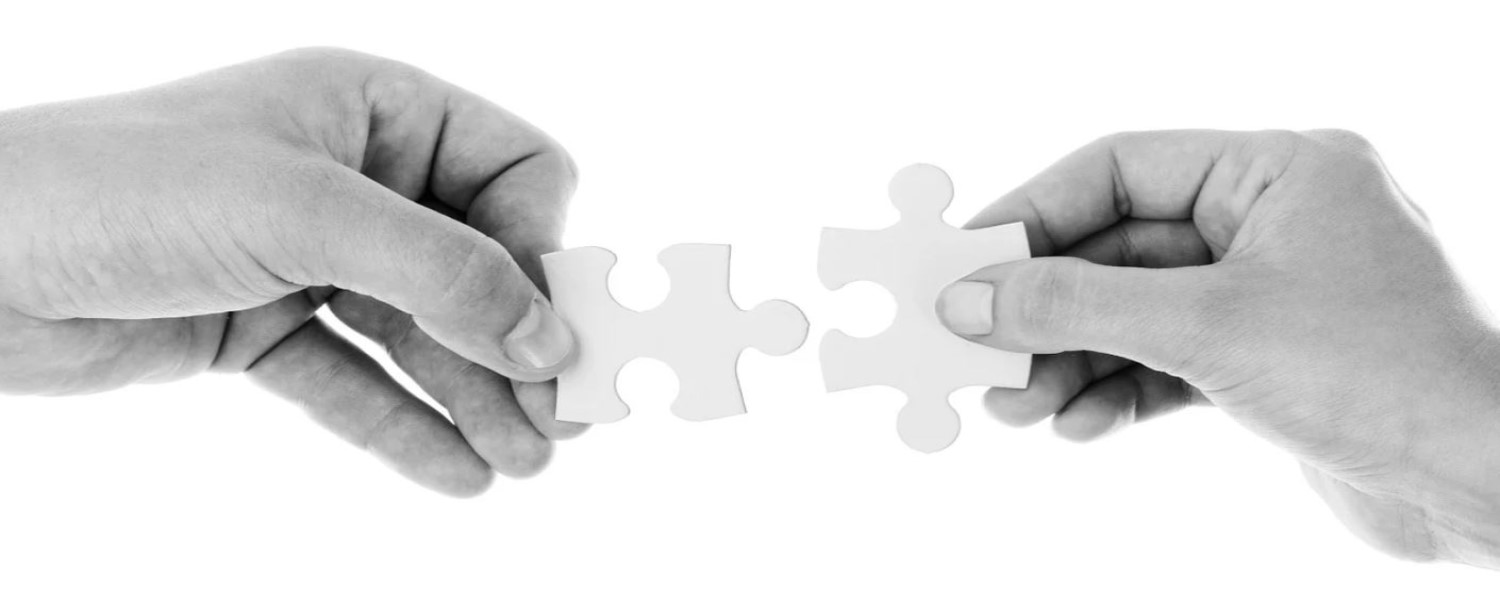This is Why It’s So Important to Think Win Win!
Unlike most of my other blog posts, I was having a difficult time figuring out a way of making this post on why it is important to think win win relatable, memorable, and entertaining. But then I found them, a series of two images that perfectly get across the message I am trying to convey regarding think win win.
The best part is the images need no explanation from me! I will present the first one now and the second one after we discuss the whole concept of think win win.
What Does Think Win Win Mean?
In his incredible bestseller, The 7 Habits of Highly Effective People: Powerful Lessons in Personal Change, Stephen Covey explains the essence of think win win:
“Win/Win is a frame of mind and heart that constantly seeks mutual benefit in all human interactions. Win/Win means that agreements or solutions are mutually beneficial, mutually satisfying. With a Win/Win solution, all parties feel good about the decision and feel committed to the action plan. Win/Win sees life as a cooperative not a competitive arena…Win/Win is based on the paradigm that there is plenty for everybody, that one person’s success is not achieved at the expense or exclusion of the success of others.” 1
Why it is Important to Think Win Win
The whole idea of think win win is something that will have a profound impact on all of your relationships by helping to build a sense of trust.
If someone knows that you are genuinely concerned about them, it will do nothing but make your future interactions with them both better and easier.
By engaging in think win win to make sure others benefit from our actions we will in turn take ourselves to an even higher level as the other person is going to want to act similarly toward us.
The Other 5 Paradigms of Interaction
As Covey explains, think win win isn’t merely a technique but rather it is one of the 6 paradigms of interaction with the others being:
Win/Lose
The first alternative to think win win is Win/Lose which we are all familiar with. It says that “I win, and you lose.” While there is a time and place for Win/Lose thinking such as athletic events, most of life is simply not a competition. Think of a marriage, if one person is winning and another is losing, both are losing!
Lose/Win
Lose/Win is basically giving up or giving in. For example, “I lose, you win” or “ok, go ahead and have your way with me.” As is the case with Win/Lose, Lose/Win is typically a weak position that is derived from personal insecurities.
Lose/Lose
A Lose/Lose situation occurs when you have two Win/Lose people getting together. When these two stubborn, competitive, egotistical people interact both will end up losing and the result will be a situation where one or both tries to “get even”.
Win
Another common paradigm is Win where you don’t exactly want the other person to lose, that point is irrelevant. What is relevant is that you get your way. It is the “every man or woman for themselves” mentality where you will secure what you need and let them figure out their side.
Win/Win or No Deal
The last option which Covey describes is one called Win/Win or No Deal which is as Covey explains “if we can’t find a solution that would benefit us both, we agree to disagree agreeably—No Deal. No expectations have been created, no performance contracts established. I don’t hire you or we don’t take on a particular assignment together because it’s obvious that our values or our goals are going in opposite directions. It is so much better to realize this up front instead of downstream when expectations have been created and both parties have been disillusioned.” 1 The only caveat with using Win/Win or No Deal in business is that it works best at the start of business relationships and may not be viable in continuing business relationships.
Which Paradigm is Best?
The answer to the question “which paradigm is the best?” is “it all depends”. You see, it all depends on the situation, if you are playing in an NFL football game, Win/Lose is the obvious choice. If you are really concerned more about a relationship and don’t care about the result you may go for Lose/Win, as in “your being happy is more important than what we do, so let’s do it your way this time.”
However, in most situations think win/win is the best course of action as Covey says:
“Most situations, in fact, are part of an interdependent reality, and then Win/Win is really the only viable option…In the long run, if it isn’t a win for both of us, we both lose. That’s why think win win is the only real alternative in interdependent realities.” 1
Dimensions Needed to Think Win/Win
Covey believes that in order to think win win and to use it successfully in all of our interactions it must be used alongside several dimensions of life:
Character
Someone who approaches life with a think win win mentality possesses three critical character traits:
Integrity: being true to your feelings, values and commitments.
Maturity: being able to express your thoughts and ideas with confidence and consideration for the thoughts and ideas of others.
Abundance mentality: realizing that there is enough to go around for everyone.
Relationships
Covey describes making deposits in “emotional bank accounts” of others or doing things for others without expecting anything in return. This creates the trust and credibility that think win win scenarios can be built upon.
Agreements
As Covey says, “From relationships flow the agreements that give definition and direction to Win/Win.” 1 These agreements typically contain the following 5 elements which are made extremely explicit: the desired results, guidelines, resources, accountability, and consequences.
Structure and Systems
The whole paradigm of Win/Win can only survive in an environment that supports it, namely cooperation rather than competition. All of the systems – planning, communication, information, compensation need to be aligned with think win win.
The Process to Make Think Win Win Happen
Before we get to the second image that I promised above, let’s first discuss the four-step process that Covey recommends to make think win win happen:
“First, see the problem from the other point of view, Really seek to understand and to give expression to the needs and concerns of the other party as well as or better than they can themselves.
Second, identify the key issues and concerns (not positions) involved.
Third, determine what results would constitute a fully acceptable solution.
And fourth, identify possible new options to achieve those results.” 1
And Now for the Second Image…
…that perfectly demonstrates the concept of think win win.
But first, let’s refresh our memories by taking a look at the first image again:

Ok, now for the second image:

So, the moral of the story is this:
If a couple of asses can figure out how to think win win, so can the rest of us!
Until next time, think win win, sometimes you need to be an ass, and as always…PYMFP!
–Rick

Use it or Lose It
The 4 step process that Covey recommends to think win win that we discussed above is:
First, see the problem from the other point of view, Really seek to understand and to give expression to the needs and concerns of the other party as well as or better than they can themselves.
Second, identify the key issues and concerns (not positions) involved.
Third, determine what results would constitute a fully acceptable solution.
And fourth, identify possible new options to achieve those results.
When to Use It
Use think win win when there is a high degree of interdependence between you and others or when it makes sense to cooperate.
What Do You Think?
What do you think of the concept of think win win? Do you use it in your life? Will you try to think win win more after reading this post? Please share your thoughts in the comments below!
References
1 The 7 Habits of Highly Effective People: Powerful Lessons in Personal Change by Stephen Covey
If you enjoyed this post, it would mean the world to us if you shared it with people you care about via any of the social media platforms below!
Popular Previous Posts:
This is How to Get Out of Your Comfort Zone!
Kaizen: This is How Little Improvements Add Up!
This is the Best Time of Day to Do Certain Things!
Don’t Break the Chain and Stop Procrastinating!

We live in a competitive society; however , even then there has to be a cooperative model. The members of a competitive sports team need to cooperate with each other in order to win.I agree that the cooperative model wins out in our daily interactions and is usually a win – win for everyone.
Hi Eileen, That’s a great point about members of the same team cooperating to be successful in a competitive manner! Howie will enjoy the way you connected the dots there, I’ll have to tell him. Thanks and be good, Rick
Win/win involves cooperation. Win/lose involves competition.
“go ahead and have your way with me” — hmm, interesting. You may think you are winning but you are not. Way back when in the previous century while I lived in western Pennsylvania, I knew a blonde with that sort of attitude. It was fun for a while, but I did not foresee any long term benefit, so I broke it off. My next blonde turned out to be a win-win, and here we are 47 years later.
For a win/win situation, each involved party must understand that the desired outcome depends on trusting everyone doing their individual portion properly and on time. I think that’s why I will never buy another American made car (and haven’t since my used 70 GTO), The auto company and the union don’t trust each other, and even though there is a contract in effect, each side remains suspicious of the other. I know that Toyota maintains a non-union factory in Tennessee, but I learned how to read and interpret the serial numbers on Toyotas, so that’s not a problem.
Hi Dave, Interesting analogy with respect to American made cars, never really thought of that. Thanks as always and have a great week! Rick